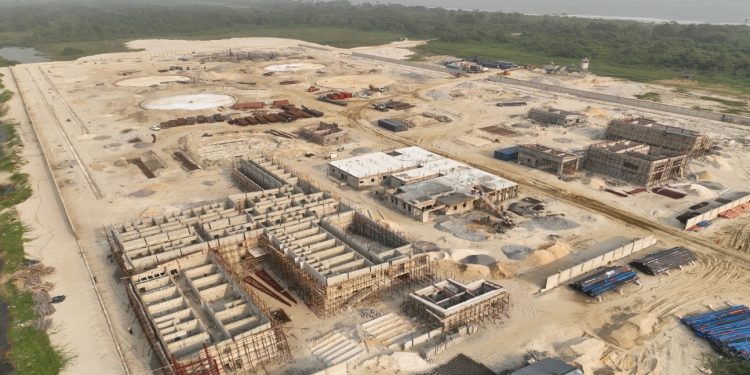Green Energy International Limited (GEIL), an indigenous energy firm, has unveiled Nigeria’s first onshore crude oil export terminal in more than five decades. Located in Otakikpo, Rivers State, the facility marks a historic milestone as the first onshore export terminal developed and operated by a private African company.
Announced in a statement on Tuesday, the terminal is designed to enhance Nigeria’s crude oil export infrastructure while reducing dependence on offshore terminals. It currently offers a storage capacity of 750,000 barrels, with the potential to expand to three million barrels. Its loading capacity stands at 360,000 barrels per day, significantly contributing to the country’s target of producing 2.06 million barrels daily.
“The newly constructed terminal boasts an initial storage capacity of 750,000 barrels, with potential expansion to three million barrels,” the company noted. “It also features a 360,000 barrels per day pumping capacity for loading export tankers, making it one of the most significant infrastructure projects in Nigeria’s energy landscape.”
Completed ahead of schedule in under two years, the project is considered one of the country’s most ambitious energy infrastructure developments. It has already attracted over $400 million in investments, with the total development cost projected at $1.3 billion.
The Otakikpo terminal can accommodate up to 250,000 barrels per day of crude injection, though the Otakikpo field currently produces about 10,000 barrels per day. GEIL stated that the terminal’s strategic design creates opportunities for over 40 nearby stranded fields, estimated to hold more than 3 billion barrels of oil equivalent, to evacuate crude oil more cost-effectively.
The facility’s location, near the Ogoni and Opobo fields, aligns with the federal government’s commitment under President Bola Tinubu to revitalize long-dormant oil reserves in the Niger Delta region. “By unlocking these assets, GEIL’s infrastructure provides cost-effective evacuation for stranded oil, positioning Nigeria for increased production and export growth,” the statement said.
Crude exports from the terminal are scheduled to begin between May 23 and May 25, 2025, heralding a new chapter in Nigeria’s oil logistics. The terminal is also expected to draw foreign investment amid rising global demand for African crude, further solidifying Nigeria’s role in the international energy sector










